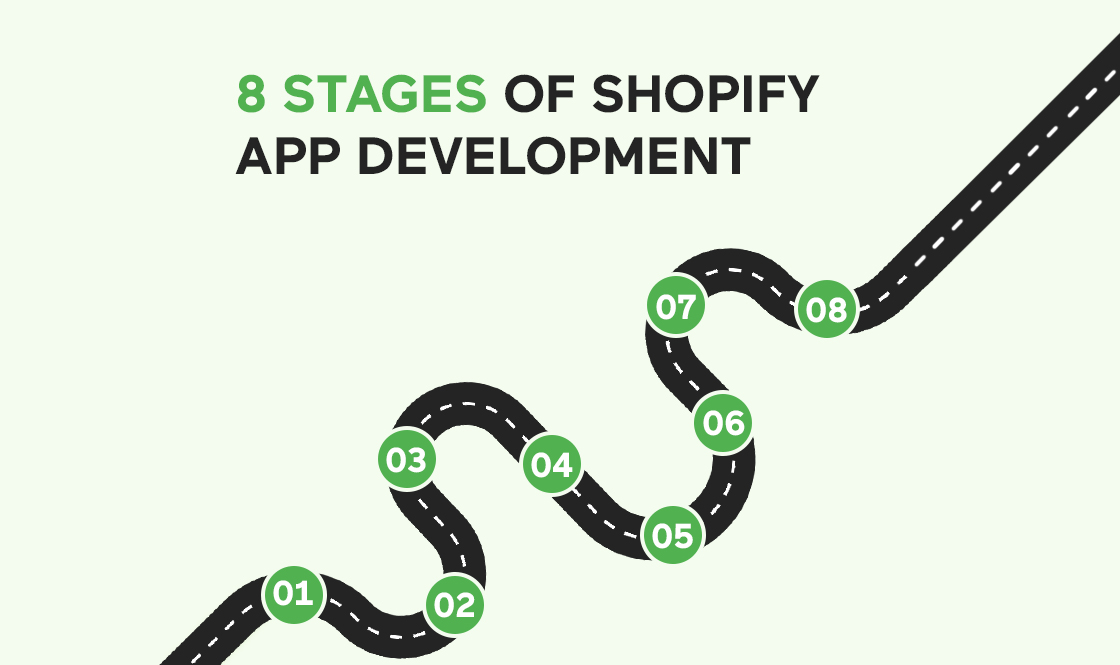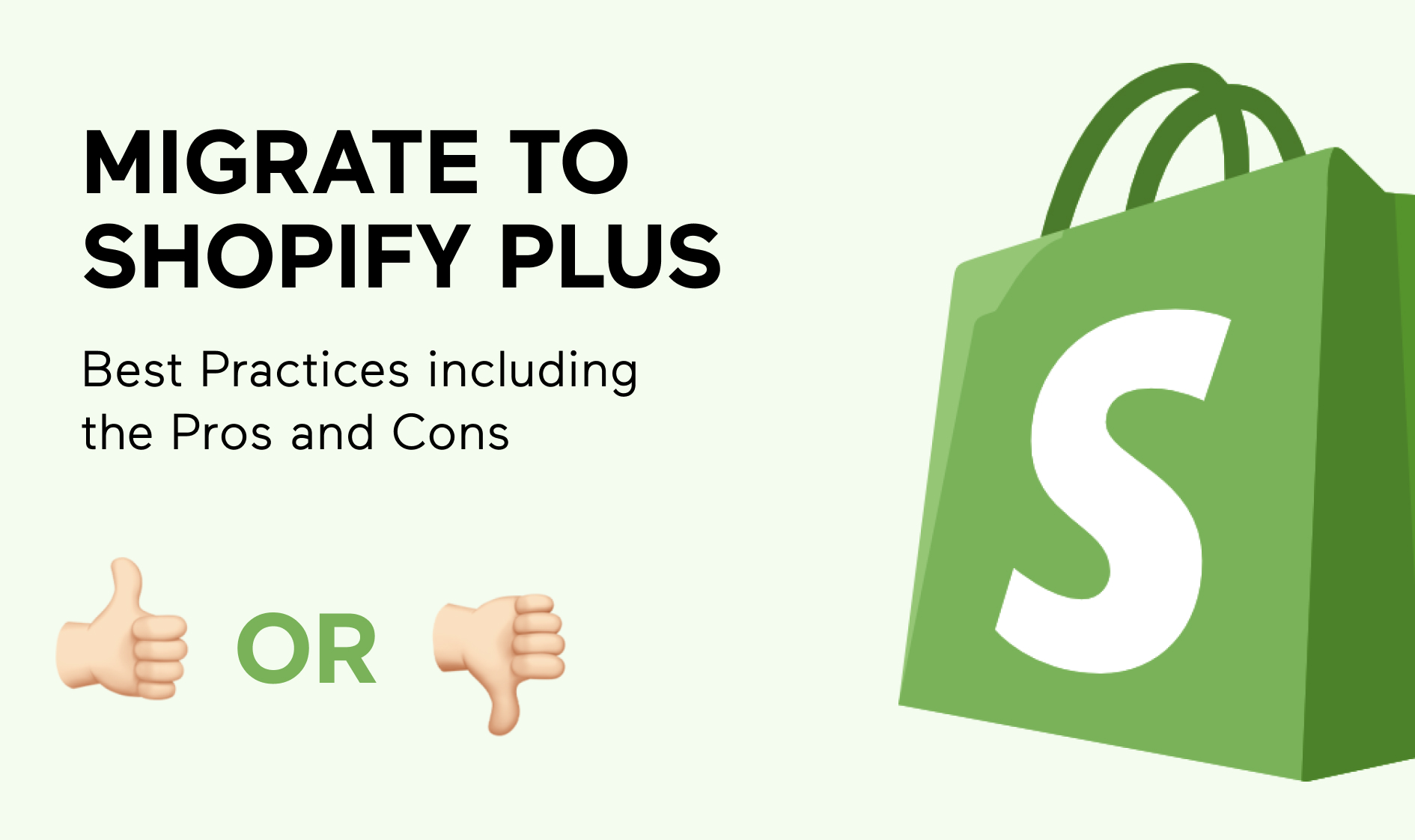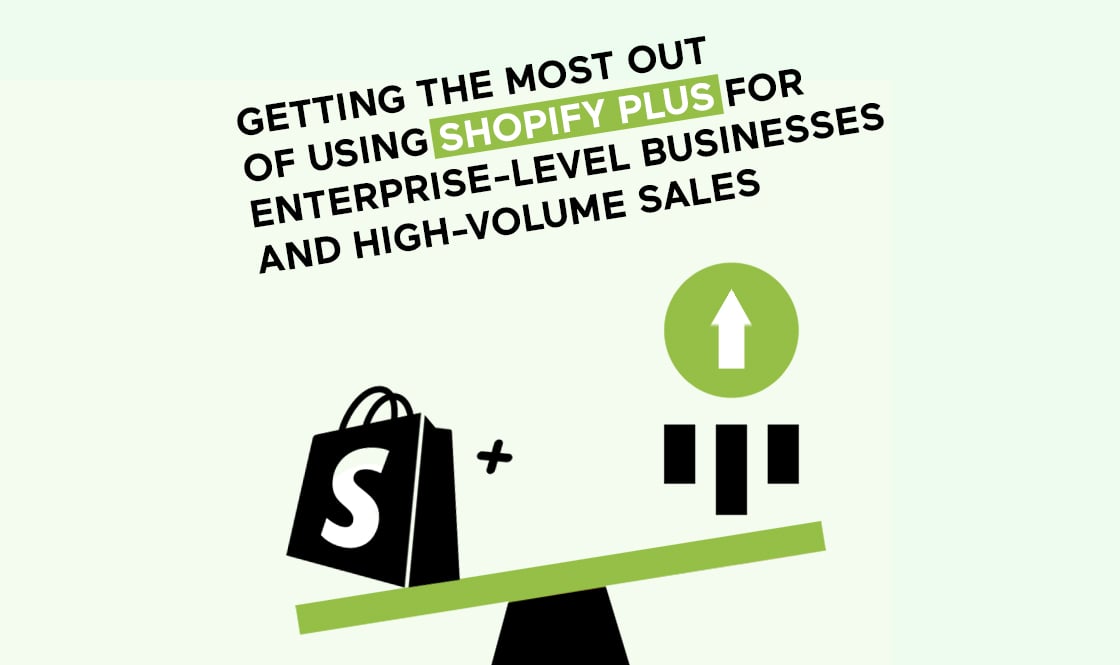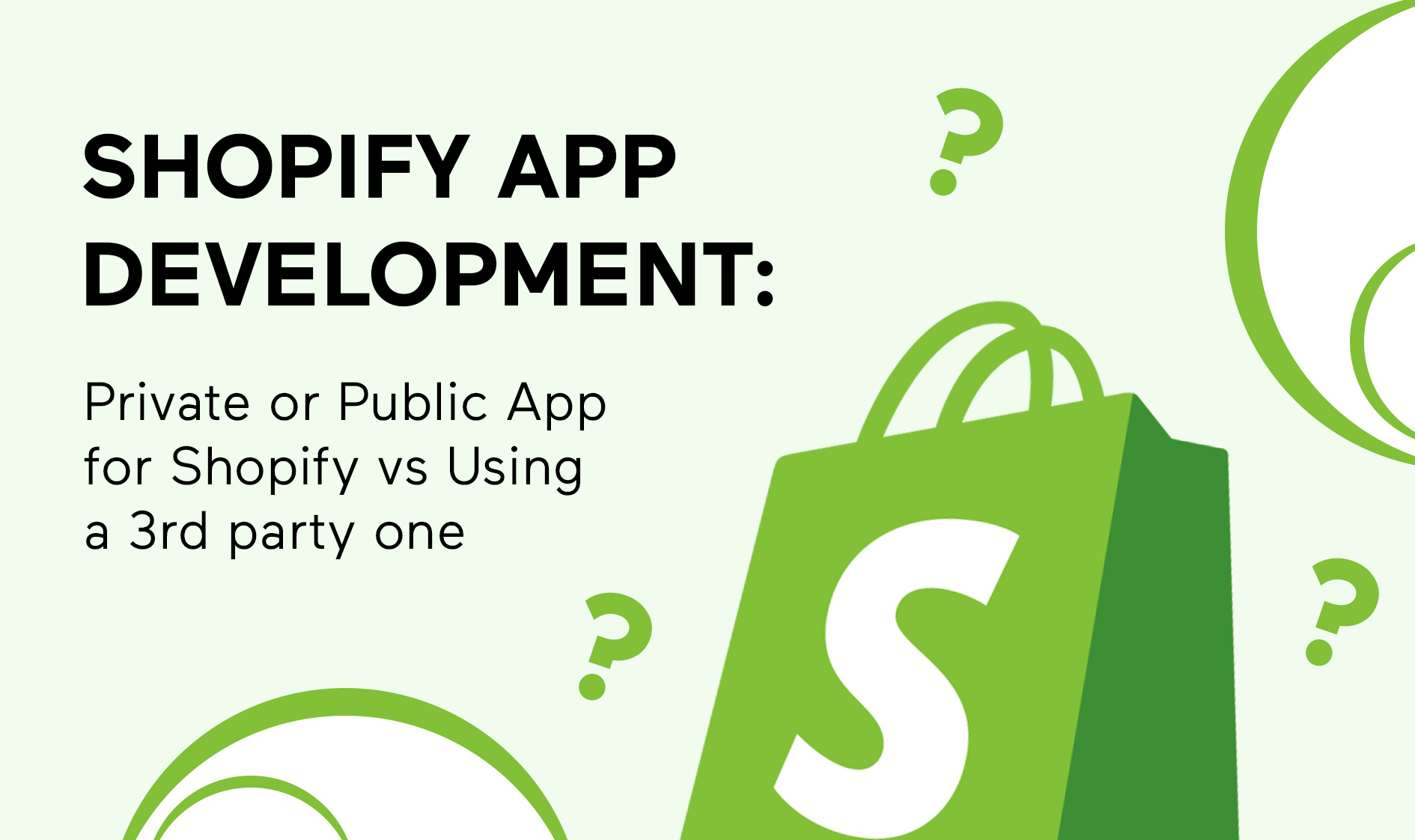
Are you feeling torn between building your own Shopify app or using one created by someone else? Don’t worry, every Shopify business owner has been there. It’s a tough decision to make, especially when you consider all the pros and cons if you even have a good grasp on what those pros and cons could be. But fear not dear reader – we’re here to help you navigate the treacherous waters of Shopify custom app development and emerge victorious (or at least, a little less confused).
In this article, we’ll explore the ins and outs of building private or public apps for Shopify, and we’ll also dive into the mysterious world of third-party apps and when to use one that you find in the Shopify app ecosystem. We’ll break down the pros and cons of each option, and give you some tips on how to choose the best Shopify app for your store. So grab your favorite beverage and get ready to learn as we guide you through the wild world of Shopify app development!
Shopify App Store vs. Custom Development
There are a few key factors to consider when deciding whether to build or use a pre-existing app in your Shopify store.
- Cost: Building your own custom Shopify app can be a significant investment of time and resources, especially if you don’t have experience in app development. On the other hand, pre-existing apps in the Shopify app store often have a one-time or recurring subscription fee.
- Functionality: If you have specific requirements or customization needs that cannot be met by an existing app, custom Shopify app development may be the best option. However, keep in mind that pre-existing apps may have features that you haven’t thought of, which could be valuable to your business.
- Maintenance: Building and maintaining your own app requires ongoing efforts to ensure that it is up-to-date and functioning properly. If you don’t have the resources or expertise to manage this on your own, using a pre-existing app may be a more practical choice.
- Time to market: If you need a solution quickly, using a pre-existing app may be the fastest option. Building your own app can take longer, especially if you don’t have a dedicated team or resources.
Developing Your Own Shopify Apps
Types of Shopify App Development
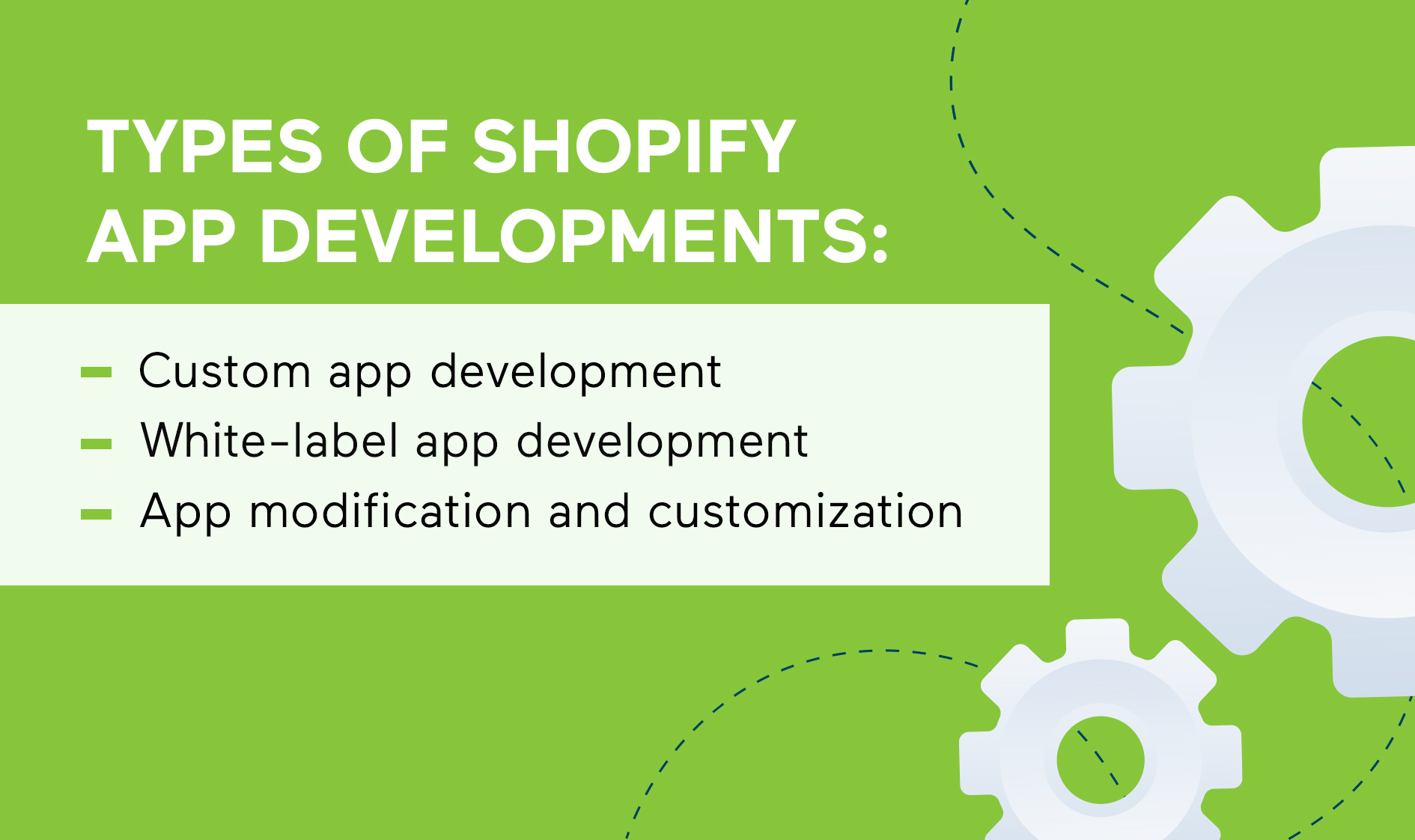
There are a few different types of Shopify app development, each with its own set of benefits and considerations. These include:
- Custom app development (private app): This involves building a Shopify app from scratch specifically for a single merchant or a small group of merchants. This is typically the most expensive and time-consuming option, but it allows for complete customization and the ability to meet the merchant’s specific needs.
- White label app development (public app): This involves building a Shopify app that can be rebranded and sold to multiple merchants. This option allows developers to create a product that can be sold to multiple clients, reducing the overall cost of development.
- App modification and customization: This involves modifying an existing Shopify app to meet the specific needs of a merchant. This can be a cost-effective option for merchants who need specific customization but don’t want to build an app from scratch.
Custom app development allows for complete customization and the ability to meet unique business requirements, but it can be expensive and time-consuming. White label app development allows developers to create a product that can be rebranded and sold to multiple clients, while app modification and customization allow for specific customization at a lower cost.
Shopify Custom vs. Public Apps
Public Shopify apps are designed to be used by multiple merchants and are listed in the Shopify App Store for anyone to install. These apps often have a subscription fee, and merchants can install and manage them directly from the app store. Some examples of popular public Shopify apps include Oberlo for importing products from AliExpress, Privy for email capture and exit-intent popups, and Klaviyo for email marketing.
Private Shopify apps, also known as custom apps, are developed specifically for a single merchant or a small group of merchants. These apps are not listed in the app store and are only available to the merchants they are built for. Private apps are typically more customized and tailored to the specific needs of the merchant, and they may not have a subscription fee. Private apps can be developed by the merchant themselves or by a third-party developer.
There are a few key differences between public and private Shopify apps:
- Availability: Public apps are available to any merchant in the app store, while private apps are only available to the specific merchant or group of merchants they are designed for.
- Cost: Public apps often have a subscription fee, while private apps may or may not have a fee depending on the specific arrangement between the merchant and the developer.
- Customization: Private apps are typically more customized and tailored to the specific needs of the merchant, while public apps are designed to be used by a wider audience and may not have as much customization.
Public apps can be a quick and cost-effective solution for many merchants, while private apps may be a better option for merchants with specific customization needs or a larger budget.
When to White Label your Shopify App to the Public vs. Keeping your App Private
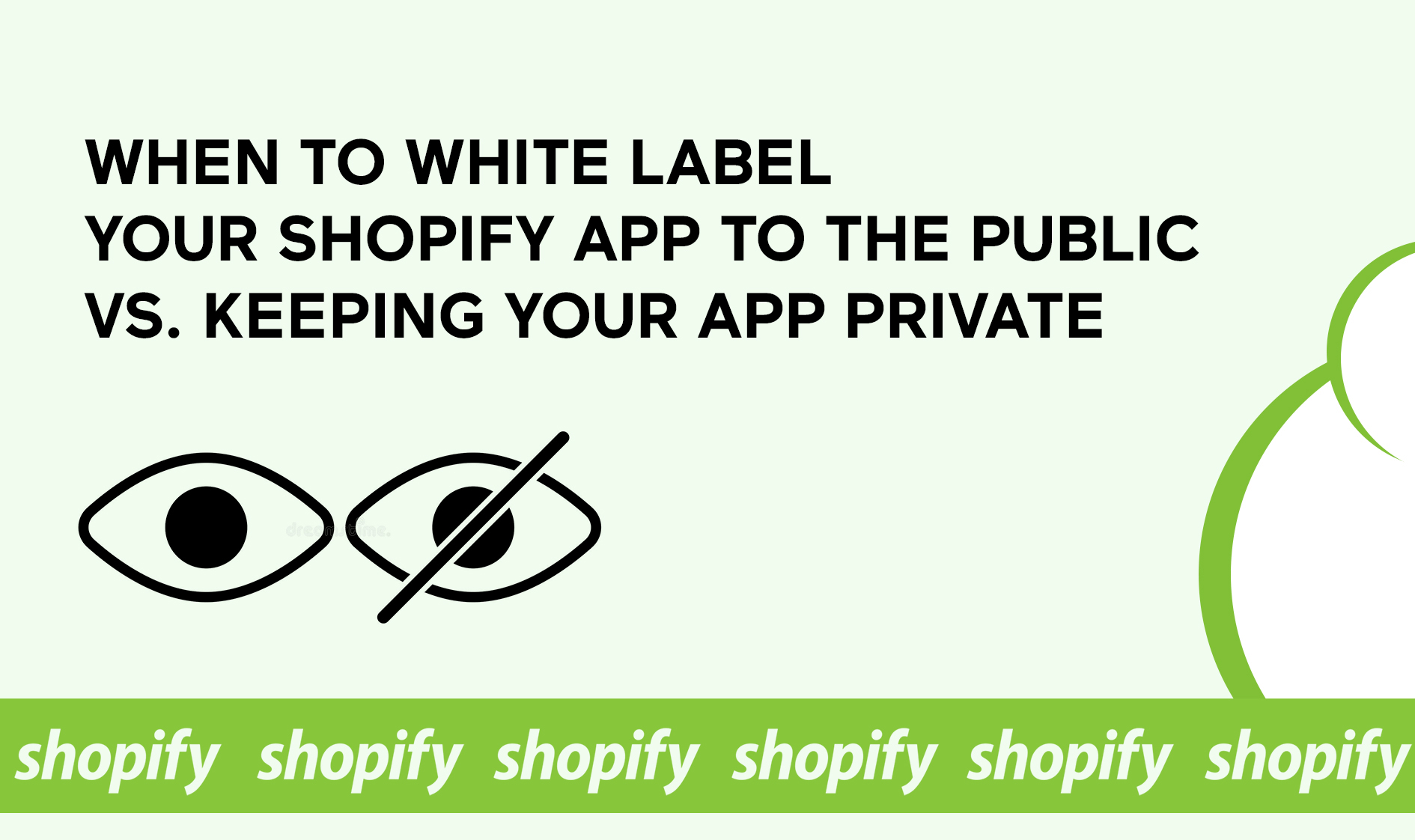
Deciding whether to create a public or private Shopify app can be a complex decision, as each type of app has its own benefits and drawbacks. Here are a few real-world examples we have seen when Shopify merchants have chosen to build a public app versus a private app:
- Developing a Public App: A fashion retailer wanted to offer its customers a way to customize their own clothing and accessories. The retailer decided to build a public app that allowed customers to design their own products and order them directly through the app. The public app was listed in the Shopify App Store, which allowed the retailer to reach a wider audience and drive more sales.
- Private App: A jewelry company wanted to streamline its order processing and fulfillment workflow. The company decided to build a private app that integrated with its internal systems and allowed the company to automate its order processing and fulfillment. The private app was not listed in the Shopify App Store, as it was only intended for use by our jewelry company client.
- Public App: A home decor company wanted to offer its customers a way to visualize how different furniture and decor items would look in their homes. The company decided to build a public app that used augmented reality technology to allow customers to see how different items would look in their own space. The public app was listed in the Shopify App Store, which allowed the company to reach a wider audience and drive more sales.
- Private app: A clothing company wanted to offer its customers a way to customize their own clothing and accessories. The company decided to build a private app that allowed customers to design their own products and order them directly through the app. The private app was not listed in the Shopify App Store, as it was only intended for use by the clothing company.
As a software development company, we suggest considering factors such as whether you want your app to be available to multiple stores if you have seasonal business needs if you plan to share the app with anyone, if you will need to scale up or enhance your business in some way, and if you require quick app support.
Release and Improving Your Chances for Shopify App Approval
To increase your chances of getting your Shopify app approved, there are a few steps you can take:
- Read and follow the Shopify app development guidelines carefully: Make sure that your app follows all of the guidelines outlined by Shopify, including guidelines on restricted and prohibited configurations, installation and setup, functionality and quality, app performance, and app listing.
- Test your app thoroughly: Before submitting your app for review, make sure to thoroughly test it to ensure that it is functioning properly and meeting all of the required guidelines.
- Include detailed documentation: When submitting your app for review, be sure to include detailed documentation that clearly explains how your app works and how it meets the guidelines outlined by Shopify.
- Use high-quality graphics and branding: The way your app is presented in the app store can make a big difference in its success. Make sure to use high-quality graphics and branding to make your app stand out and give it a professional appearance.
- Respond promptly to feedback: If your app is rejected, be sure to carefully review the feedback provided by the Shopify team and make any necessary changes. Responding promptly to feedback and addressing any issues can help increase your chances of getting your app approved on subsequent submissions.
Developing Your Own Private Shopify Apps
Private Shopify apps are a great solution for merchants who have specific requirements or customization needs that cannot be met by a public app. These apps are developed specifically for a single merchant or a small group of merchants, and they are not listed in the app store. This means that they are only available to the merchants they are built for, giving merchants more control over who can see and use their app.
Private apps are a great option for merchants who want to focus on a more targeted customer base or who have seasonal business needs. For example, if you have a seasonal e-commerce business, you can use a private app to hide your app during down seasons or for maintenance periods. This can help you save time and resources, as you don’t have to worry about maintaining an app that is not being used.
Private apps are also a good option for merchants who want more control over their business growth. Because these apps are not listed in the app store, they are not available to the general public, which can help you better control your customer base and target specific markets.
In addition to these benefits, private apps are also easy to scale up or enhance as your business grows. You can work with your custom app developer to add new features or make updates as needed, giving you more flexibility and control over your business.
Finally, private apps offer proven testing, as they have been specifically developed for your business and have been thoroughly tested before being released. This can give you peace of mind and help ensure that your app is reliable and performs well.

